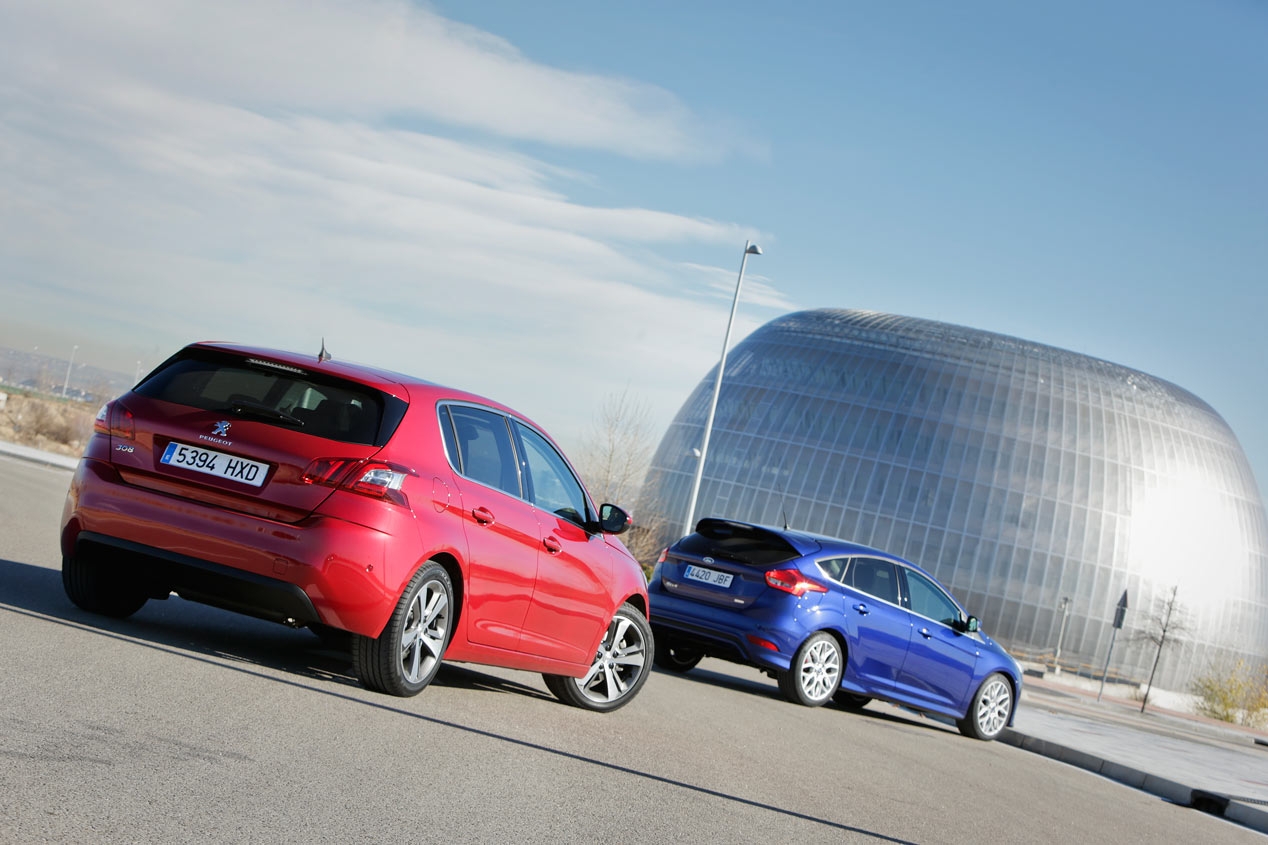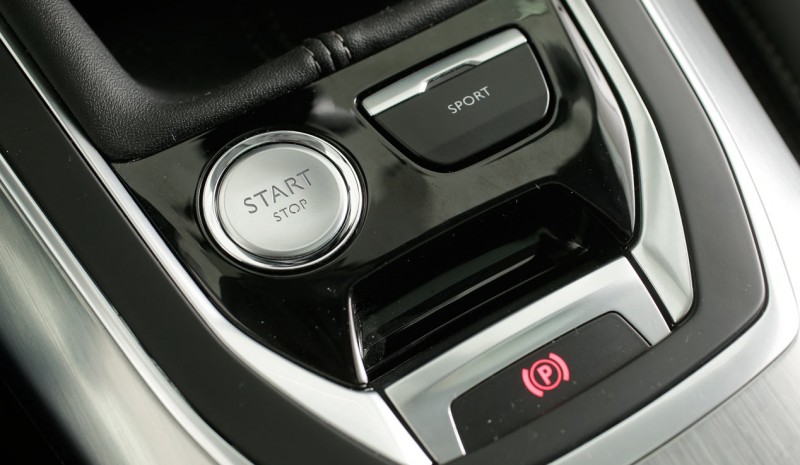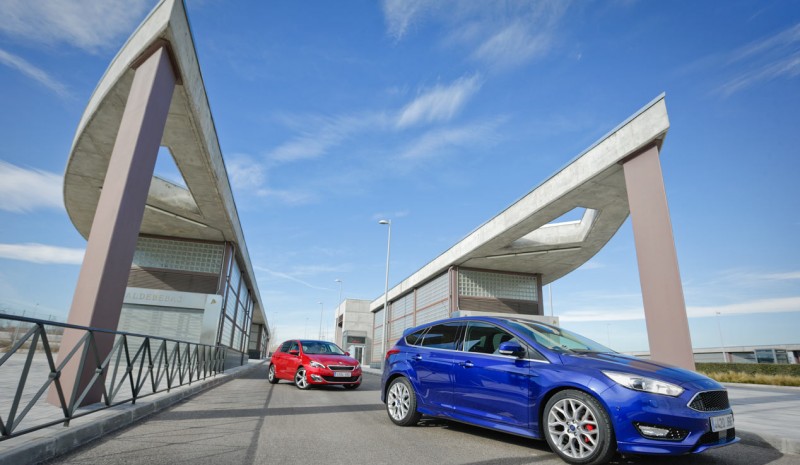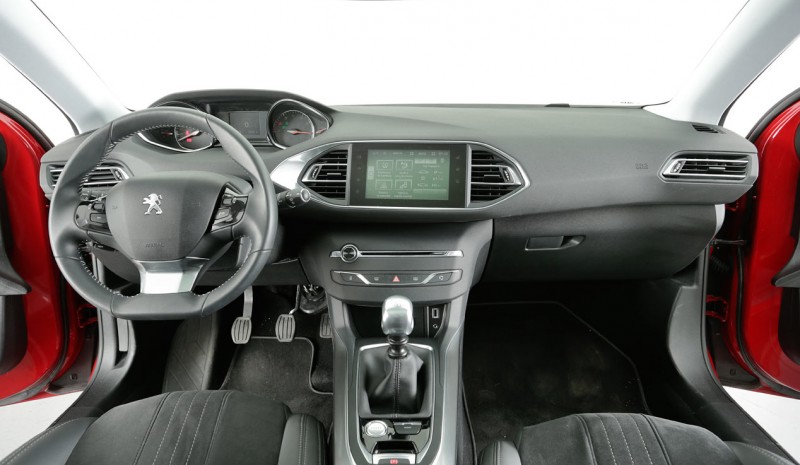Comparison: Ford Focus 1.0 EcoBoost 125 vs. Peugeot 308 1.2 e-THP 130 PureTech
In this comparison between Ford Focus and Peugeot 308 the two best segment racks, live engines and first class equipment meet.
Who would say that three-cylinder engines, born initially to reduce emissions, they would provide at the same time true sporting character? We saw it first with the 1.0 Ecoboost Ford Focus, and now comes the Peugeot 308 with 1.2 PureTech even more resounding. By his way of pushing, give the impression of having much more cavalry announcing, perhaps because you expect two "boring" environmentally friendly engines and, instead, pleasantly surprise you with a most convincing performance. Shortly after use you comes the doubt if they have the most powerful mechanical sense, because with these is more than enough even for fun driving on twisty roads, something that would be a sin not to do given the high starting level of their racks. And if that was not enough, low weight of its engines does nothing but benefit the front end, that is precise and very obedient to our commands, achieving in absolute terms, more effective than the most powerful versions, let alone face the heaviest Diesel behavior.
Keeping an eye on its optional equipment and its dynamic aesthetic intentions are confirmed. On the one hand, a striking 18-inch tires in Focus, with evocative red brake calipers housed inside belonging to a outdoor sports package customization (Bumpers, sills, red clamps); for another, Sport ‘button on the Peugeot 308 which, when pressed, engine processes sound to make it more sporty, Red turns the backlight on the instrument panel, steering hardens and modifies throttle response. At the same time, the French makes available information on power, torque and turbo boost pressure we are using at all times and a graphical representation of the lateral and longitudinal accelerations. Interesting.
 Content consumption and assumable
Content consumption and assumable
And despite all, we must not forget that fruit of "downsizing"We are dealing with powertrains that can be achieved very content, yet away from a diesel, but bearable consumption. However, to achieve 6 liters recorded by our Technical Center road must be willing to make efficient driving, putting some effort on our part and making exclusive use of the lower area of the counter, which has enough torque to "drag" with ease. In both cases, the consumption figures are very similar, although it is true that Peugeot has a surprising answer a few laps and it is perfectly usable from just 1,000 rpm, which gives a lot of urban agility. It is blunt and barely turbo lag, but in case of abuse of the first 2,000 rpm occasional vibration transmitted to the passenger compartment. Not so in the Focus, but also have the option of using both cuentavueltas area next to idle, since its thrust there is much weaker than his rival, forcing more use change. By the way they deliver the power, Focus 1.0 Ecoboost reminiscent of a volumetric compressor engine with turbo rather than because it is so gradual that no "kick" to 2,000-2,500 rounds, but from 4,000 rpm begins to stretch is when an unexpected rage, compensating power base its lower torque resulting from the smaller displacement. When demand benefits both are fully satisfactory, nice for smoothness and linearity, and able to cope with almost any situation that arises, despite long developments change with which they are provided, which are almost Diesel.
Go very fast with Ford Focus 1.0 EcoBoost 125 requires more skill, because their Sports reactions to the limit They are more demanding (ESP more for that driver), but It is a delight for immediacy, pinpoint accuracy and aplomb with which obeys any hint of direction. Its suspension is firmer than the Peugeot, but not be uncomfortable, and the body is more subject. He Peugeot 308, meanwhile, it also presents an exemplary dynamic equilibrium, with a high efficiency curve and a rear that helps close the twists far beyond what the vast majority of users may need, but without reducing driveability. lighter and with very few inertias noticeable, but the setting of the suspensions, more oriented towards comfort, let the body swing more and not as accurate in some specific moments, for example if several consecutive waves of asphalt. Moreover, in very broken roads or if you pass over an expansion joint in the support, it moves back more than the Ford Focus, what It has a sophisticated multilink rear suspension. In any case, both put the bar very high.
Although it seems that all are virtues, the fact is that you can also put some snags. Is improved camera reversing the Peugeot 308, as in dark places hardly distinguish anything on the screen -ocurre the same in other models of PSA-and its Stop / Start system, the engine transmits a vibration to stop. Neither the beam is optimal, their short range, despite being led type. As for the Focus, jockeying is somewhat more cumbersome for her within higher and lower visibility of the environment rotation, besides being something bigger externally. And on the subject of touchscreens, even when well resolved, they require some attention for management, which can lead to distractions.
The Peugeot 308 is more comprehensive in general and provides higher performance, although the Ford Focus, with tighter price and very satisfactory, will like most fans of sporty driving, thanks to the sharp character of its engine and a more reactive rear.




